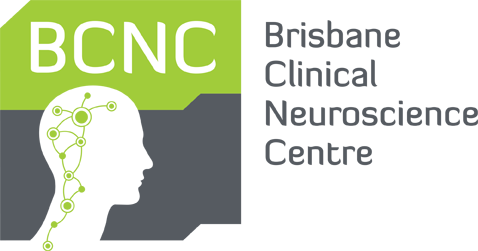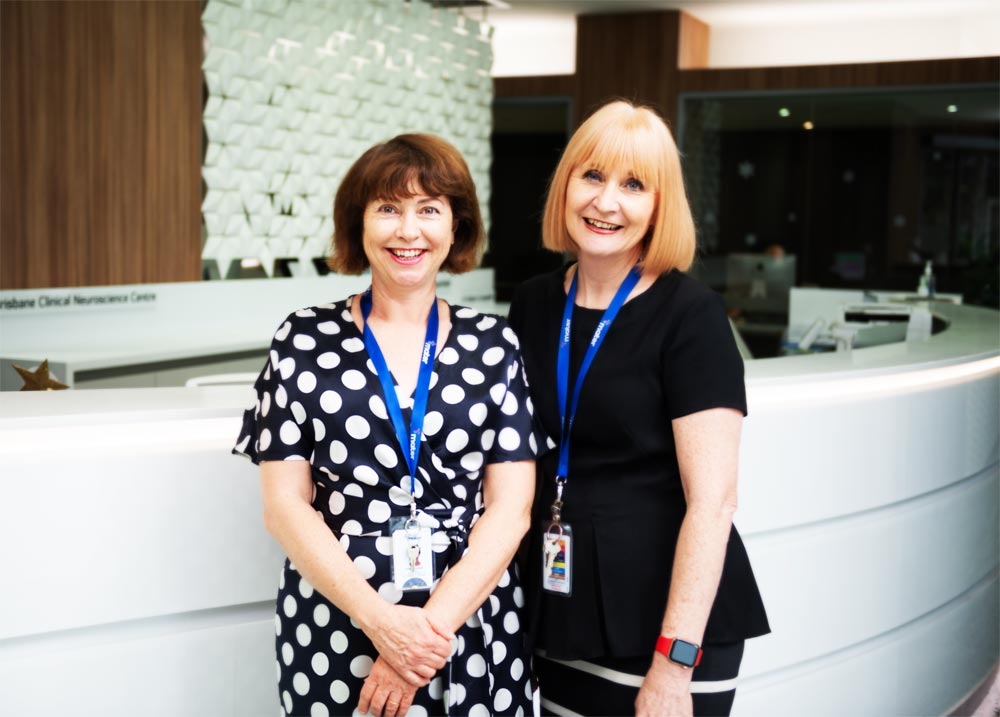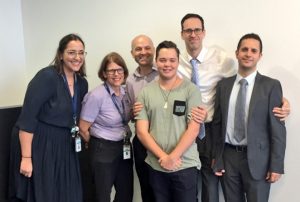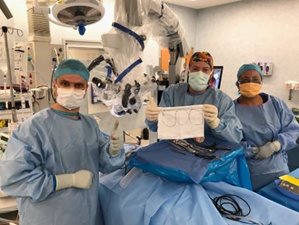Every day people ask me what it is like running a large neurosurgery practice and my answer is always the same. It is a privilege.
I work alongside talented specialists as they strive to better the lives of their patients. Is my day like herding cats? Yes. Like most practice managers, we are experts at juggling, telepathy and landing aircraft. I can get online access to an interstate radiology practice, lock in an emergency theatre list, and track down wayward equipment all before breakfast.
Of course, managing this group of wonderful humans is not my priority. Patients are.
I can get online access to an interstate radiology practice, lock in an emergency theatre list, and track down wayward equipment all before breakfast.
You won’t find my admin team in the operating theatre, but we understand the important role of assisting patients during their medical management at a time of uncertainty or vulnerability.
We have spent a lot of time thinking about how to become a patient-centric practice. We asked our patients what worked and what didn’t. We thought about our own patient experiences.
It doesn’t take a rocket scientist (or brain surgeon) to know that patients don’t like waiting. Not just waiting for their doctor to turn up (and let’s face it, no one likes paying for parking). Patients don’t like waiting for an appointment, for results, or for information about their clinical pathway. Furthermore, there is nothing worse than walking out of a consultation clutching an x-ray form, referral to another specialist, a sense that you might need a second opinion, or travelling to yet another location for treatment.
Finally, patients don’t like getting lost and I don’t mean this literally.
Patients want to be treated as a person, not a diagnosis. They want their specific needs met. Patients want ACCESS, COHESION and CONNECTION.
We love improving our service, so what did we change?
Better access for our patients
An anxious patient, or concerned GP can phone a hotline and obtain an appointment within 24 hours.
At the BCNC we now have a rapid access policy for neurosurgical patients. An anxious patient, or concerned GP can phone a hotline and obtain an appointment within 24 hours. Doctors can phone the same line for an immediate connection to a neurosurgeon on-site to assist with clinical decisions.
Patients want convenience and we have responded to this trend by taking the medicine to the people. We now have TWELVE outreach clinics in rural hubs like Gladstone, Rockhampton and Toowoomba and these clinics are supported by our telemedicine service. Our patients in rural and remote Queensland are a mouse click away, and linking the GP into the consultation provides valuable support.
Cohesion between Practitioners
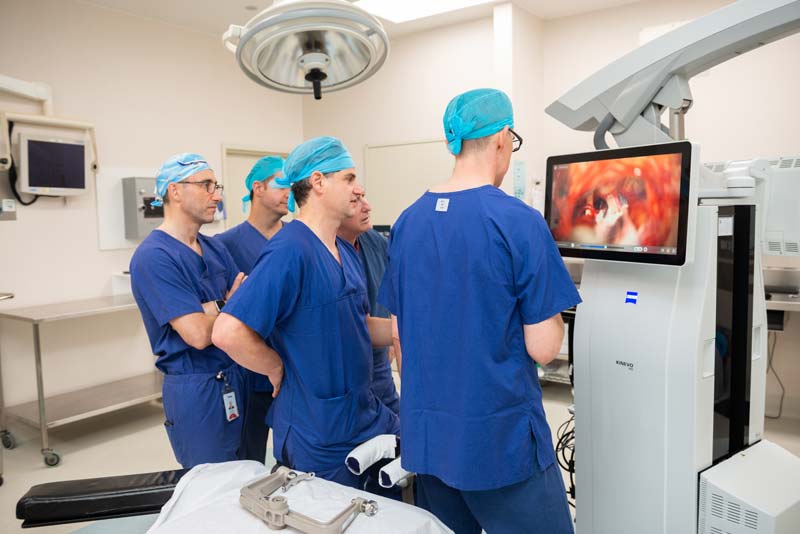
Seamless management can occur on several levels. Firstly, having a large group of surgeons means that patients have the benefit of a second, third or fourth opinion, if that is what they want. It is not unusual for two neurosurgeons to operate together on complex cases and individual interest or subspecialties optimise a clinical pathway as a patient can be matched to a doctor. An on-call roster with a shared database means continuity of care around the clock.
Secondly, having a large number of aligned specialties on site, provides layers of care. Neurosurgery is mostly a collaborative discipline and complementary specialties in-house, like ENT surgery, neurology, pain physicians and radiation oncology means ease of appointment scheduling and comprehensive exchange of medical information. A one-stop shop, so to speak.
Finally, we have introduced a patient hub – a team of staff who provide a concierge experience for our patients. Our team can assist with accommodation, financial consent, a pre-admission assessment, radiology, anything really. No-one leaves the practice clutching a post-it note scrawled with instructions or a sense that they have forgotten something. Don’t tell the surgeons, but it is the patient hub team who get the most compliments.
Connecting with our patients
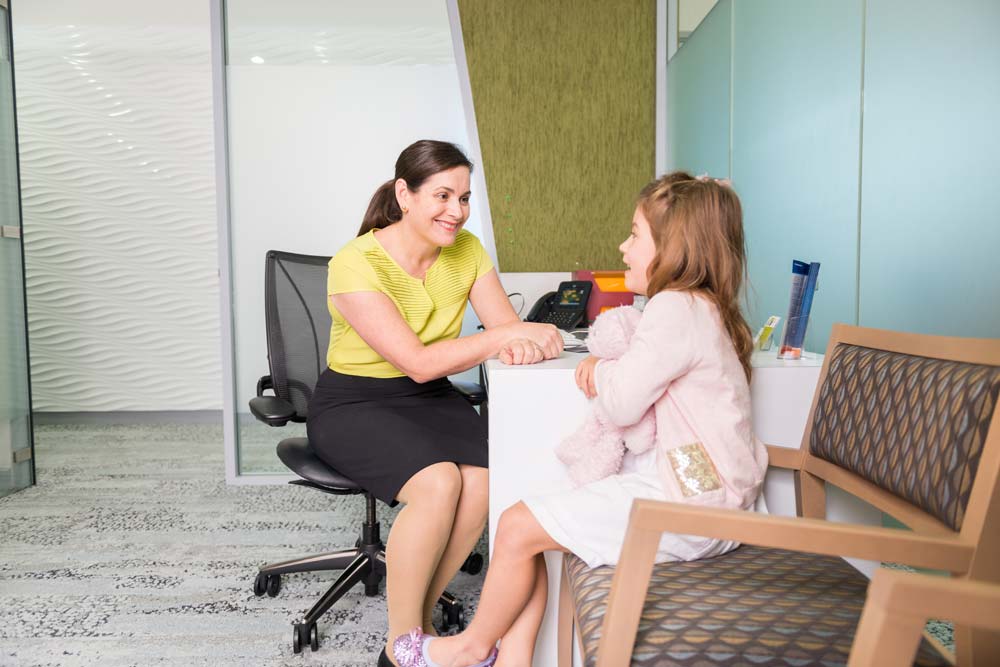
Our practice nurses are here to support the patient experience. They are the pre-operative point of contact, and provide valuable social-emotional support, nursing care and education. BCNC nurses contact our patients regularly during the critical post-operative period, providing support, monitoring of wounds, assistance with pain management and recovery. They are essentially a human chain linking the patient journey.
We understand
A patient-centric practice means understanding patient perspective. We know that our patients can feel anxious, or might be experiencing pain. We know that patients can be overwhelmed or have information overload. We understand the importance of dignity and the significance of hope. We are here to help.
We are proud to provide excellent patient-centred care, to be here when you need us, in our joyous workplace.
